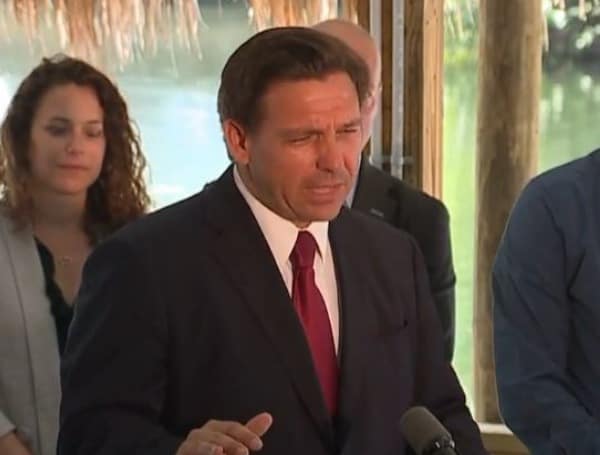At a press conference in St. Pete on Monday, Florida Gov. Ron DeSantis signed an executive order invalidating all remaining local emergency COVID-19 orders.
The bill will take effect July 1, 2020, but DeSantis said the order will take effect immediately.
“I think this is the evidence-based thing to do,” said DeSantis. “I think that’s the evidence base thing to do,” DeSantis said during a news conference in St. Petersburg. “During any emergency, our businesses should be free from government mandates to close, and our schools should remain open for in-person instruction for our children.”
DeSantis signed SB 2006, which says that any emergency orders can last no longer than six weeks. It gives him the authority to overrule cities that adopt restrictions deemed too harsh or unnecessary and gives city and county commissions the power to overrule mayors.
“We have made it a mission in Florida to be ready for whatever disaster comes our way. Nobody could have predicted we would face a global pandemic such as this, but this session we looked at every aspect of the pandemic to determine how we can best be prepared for the threat of tomorrow. This bill balances protecting public health and guarding our economy from government overreach,” said Speaker of the House Chris Sprowls. “I applaud Governor DeSantis for doing what was necessary, despite the cries of critics and naysayers, to ensure Florida remained healthy and strong.”
It also gives the state legislature the power to overrule any restrictions the governor enforces, which DeSantis touted as a check on any future Democratic governor who enforces rules the GOP legislature opposes. While businesses can still mandate masks if they choose to, local governments cannot, under the law.
“I think the legislature looked and said, ‘Well, okay, what if we were in a California situation?’” DeSantis said, touching on the Democratic state’s array of coronavirus restrictions in place. “What would the legislature’s ability to be? And so they put safeguards for the people of Florida.”
Democrats, however, attacked the bill, alleging hypocrisy given Republicans’ seeming support of limited government and criticizing DeSantis’s leadership throughout the pandemic.
“The Executive Order he just signed to is just so hypocritical to the so-called values of the party of small government,” said Democratic state Rep. Anna Eskamani, according to the Orlando Sentinel. “It was local governments that led the way in protecting their people and putting into play standards that helped to stop the spread of COVID-19 … It really is so important that every government agency at every level work together to solve these problems, not continue to demonize [local] governments.”
“To be clear, cities like St. Pete, Tampa, Orlando, Miami and Miami Beach saved Florida and the governor’s behind throughout this pandemic,” St. Petersburg Mayor Rick Kriseman said on Twitter. “Can you imagine if each city had been led by Ron DeSantis? How many lives would have been lost? What would our economy look like today?”
Tampa’s Mayor Jane Castor said in a statement, “The best decisions are made by local authorities who are closest to the unique health and welfare needs of our communities. We will continue to follow CDC guidelines and encourage all of our residents to get vaccinated so that we can safely return to a sense of normalcy.”
The bill also prohibits businesses from requiring “vaccine passports,” building on an earlier executive order DeSantis signed in April.


